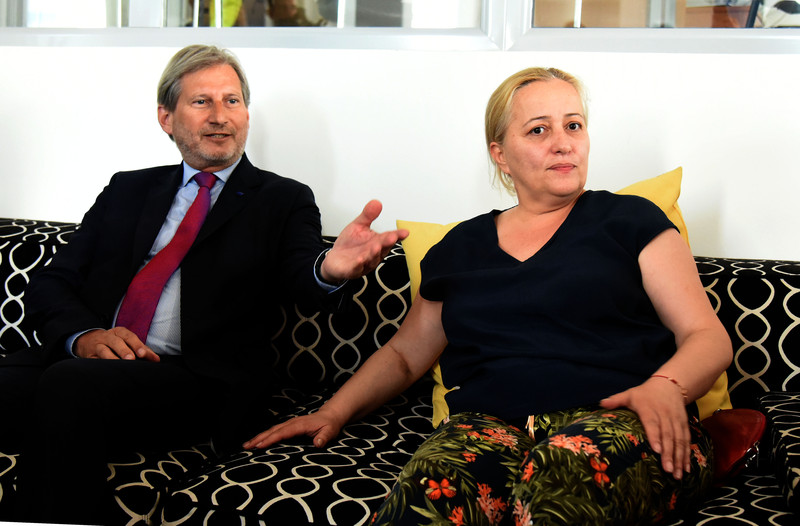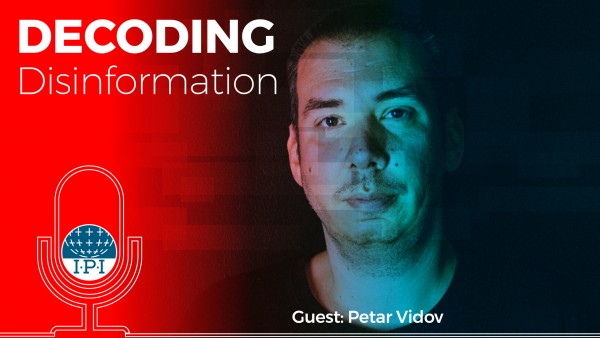In May 2018, Olivera Lakic, a journalist covering organized crime and corruption for Vijesti newspaper, was shot in the leg in a targeted attack in Podgorica, Montenegro’s capital. She survived the attempt on her life. Far from an isolated incident, however, this was one of many times that the journalist had faced serious physical threats because of her reporting.
In 2012 Lakic was assaulted by two men but managed to escape “only” with a serious head injury. On this occasion, the attack occurred after she published a story about illegal dealings in the city of Mojkovac, alleging involvement of state officials. In the past her family has also been threatened.
In Montenegro, a small country in the Western Balkans with a population of just over 600,000, such attacks are emblematic of the wider threats posed to press freedom. Along with the physical attacks on journalists, high levels of impunity and legal harassment, media outlets also face significant challenges to stay afloat financially – even before the ongoing COVID-19 pandemic, which is threatening the survival of independent media everywhere.
Attacks on journalists
Journalists reporting on organized crime and corruption are systematically subjected to physical attacks, death threats, legal harassment, intimidation, or having their property destroyed or damaged.
“Attacks on journalists are getting worse by the year”, Milka Tadić Mijović, director of Center for Investigative Journalism in Montenegro, told the International Press Institute (IPI) in an interview. “All media that is not controlled by the government is facing serious pressure due to physical and verbal attacks.”
Since 2004, the country’s Commission for Monitoring Investigations of Attacks on Journalists has documented at least 85 attacks on journalists, according to Nikola Marković, editor-in-chief of Dan newspaper and president of the Commission.
Some outlets are targeted more than others. Since 2007, Vijesti newspaper has recorded 21 cases of physical attacks and attacks on property of journalists in connection to their work, according to Željko Ivanović, president of newspaper’s board of directors.
“The majority of crimes against journalists remain unpunished. In only a handful of attacks against Vijesti journalists’perpetrators of violations were sentenced, while the masterminds of the attacks remain unknown”, Ivanovic told IPI.
Impunity
In Montenegro, journalism often suffers at the expense of safeguarding the private interests of public officials and their families. Impunity is rampant in the cases of attacks on journalists. All of the journalists IPI spoke to for this article said that in Montenegro the judiciary is highly influenced by the ruling party.
“The Commission established that the prosecutor’s office works unprofessionally and engages in covering up cases”, Marković told IPI. “The common denominator for cases that are covered-up is that journalists involved were engaged in investigations of organized crime and its close connections to the highest representatives of the political power.”
One of the most recent attacks exemplify this very well. In an interview with IPI, Dan journalist Vladimir Otašević said he was verbally abused and intimidated by a bodyguard of Montenegrin businessmen Zoran Bećirović in December 2019, after he had taken photos of Bećirović and High State Prosecutor Milos Šoškić in a cellphone shop. At the time of the attack Bećirović was under investigation for threatening the special state prosecutor. Šoškić, who was observing the abuse, remained a silent spectator as the journalist was being threatened.
Like many other Montenegrin journalists, Otašević too has a history of incidents in connection with his investigative work. In 2017, he received a death threat during a phone call with the brother of Montenegrin Prime Minister Duško Marković. His legal case was rejected by a court under the pretext that the phone call recording was obtained unlawfully.
“The judicial system in Montenegro is not capable of protecting journalists from the attacks.” Otašević told IPI, “There are numerous cases that clearly demonstrate that the judicial system had freed the attackers from accountability for the attacks, or in some cases, had punished them with mild sentences.”
Tight control of the media
Another major issue is the political pressure on the country’s public broadcaster, RTCG. “Public service RTCG is under total control of the ruling party”, Tadić Mijović said. “Especially after brutal and unlawful dismissal of independent members of its council two-and-a-half years ago when management attempted to professionalize reporting and distanced itself from those in power.”
Andrijana Kadija, former director of RTCG who was removed from her position, told IPI her dismissal was only an element of a wider strategy of the ruling party to increase its control on the media. “During the eight months the political leadership was looking for potential reasons to remove me from my position and finally they decided to use the contract between RTCG and an NGO Center for Civic Education as a basis for the removal claiming that it had damaged, when it had actually promoted, ethical journalism”, she said.
“My only sin is that I distanced myself from both the incumbent and the opposition, as well as all other centres of political power”, Kadija added. “I am not a member of any political party and I considered that my only duty was to respect professional standards, which I did.”
Legal harassment and financial constraints
Legal harassment from powerful individuals is a constant concern. Over the past 10 years three major national media outlets – Dan, Vijesti and Monitor – have been ordered by the courts to pay over 300,000 euros in lawsuits filed against these publications, according to Tadić Mijović, out of which tens of thousands of euros have been paid out personally to Montenegrin political leader Milo Đukanovic and members of his family.
In Vijesti’s case, investigations into political and business elites and the suspected wrongdoing of Đukanović have cost the media house dearly. Since 2009, the outlet has had to pay over €100,000 as damages in lawsuits and over €50,000 in legal coasts.
“Farcical trials devoid of concrete arguments that often end up in stiff punishments, as well as the fact that only critical media is targeted by defamation lawsuits, demonstrates that the judiciary is far from being independent of politics”, Ivanović said.
However, such lawsuits are not the only mechanism used to burden the media financially. “The media market in Montenegro is ruined”, Tadić Mijović said. “Critical media outlets find themselves financially constrained due to losing advertising revenues to pro-governmental media”. Independent media are financially crippled while media outlets close to the government are free to compete for things other than mere survival.

This statement by IPI is part of the Media Freedom Rapid Response (MFRR), a Europe-wide mechanism which tracks, monitors and responds to violations of press and media freedom in EU Member States and Candidate Countries.



